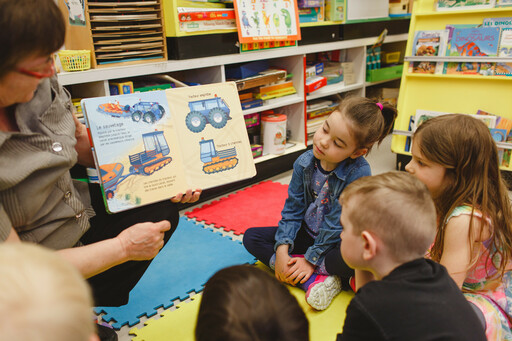The Kimochis® Start School series, produced by Strathcona County’s Family Resource Network and Mental Health Capacity Building team, continues with a three-minute video for you and your child to watch together about Bug, another one of the Kimochi® characters. Bug teaches us about what we can do when we’re feeling shy, scared or left out. Many children will enter kindergarten brimming with enthusiasm and excitement. For some children, they may find the experience brings up some hard-to-have feelings and unhelpful thoughts. We can’t always control our feelings, but thoughts are something we can intentionally change. Sometimes our thoughts can help us with a hard-to-have feeling! Bug talks about being brave and how we can use positive self-talk (helpful thoughts) to overcome these feelings. Linked below the video, you’ll find a simple, fun activity to do with your child. As always, children are watching and listening to their caregivers closely. It can help to ‘think out loud’ and model how you use positive self-talk in tricky moments. For children who seem to be stuck in negative self-talk, this article contains some additional suggestions.
This week, we’re going to delve into early literacy—a collection of skills, understandings and attitudes that help prepare children to do the formal work of reading and writing. Some of the biggest wonders you’ll experience with your child next year will be their ability to begin to read and write. While kindergarten students will all develop these skills at different rates, you’ll notice tremendous growth in your child from September to June.
The EIPS Early Learning team has compiled some great tips to help enhance your child’s literacy journey:
- Literacy can—and should—be introduced to your child as soon as possible! Reading books to your child daily will help develop many early literacy skills such as concepts of print, vocabulary, sense of story and so much more. It’s even better if you have conversations with your child as you read to them. The Florida Center for Reading Research has a great example of how to engage your child in conversation during a read aloud.
- Who doesn’t love to sing? Most children do! There’s a strong link between singing and reading development. Through songs and finger plays, children develop important skills like phonological awareness—the ability to manipulate words and sounds. For some great songs for children, try out Super Simple Songs.
- The alphabet! Your child will work very hard in kindergarten to learn their letters and sounds. You can help your child at home by playing with alphabet puzzles, letter magnets and reading alphabet books. One great resource for learning the alphabet is Leap Frog.
- If you’re trying to choose something to read to your child, why not start with nursery rhymes? The rhyme and rhythm of these tales highlight sounds and syllables and help children develop an ear for language. You can find so many different versions of these rhymes and your child will benefit from hearing them over and over again. Here’s a great list of nursery rhymes created by the Strathcona County Library.
- Try to “up” your vocabulary game. While much of a child’s vocabulary is developed by reading books because of their use of unique words, you can also help develop vocabulary by changing the way you speak to your child. Instead of saying, “Let’s go for a walk,” you might say, “Let’s go for a stroll” or “Let’s take a spin around the neighbourhood.”
- Play with sounds. This is so easy to build into everyday activities. For example, if you take your child grocery shopping, say things like, “I’m going to get some carrots. C-C-C-carrots. I am going to buy some apples. What’s the beginning sound in apples?”
- Invented spelling will be important. A recent study found the biggest predictor to reading success is actually writing! When your child’s in kindergarten, their teacher will work hard to help your child learn to sound out words. The process of children choosing letters to correspond to sounds to create words—even if spelled incorrectly—is called invented spelling. If your child asks you how to spell a word, never give them the word. Instead, work with them to figure out the sounds. If they spell the word incorrectly, that’s perfectly acceptable. In fact, you don’t even have to correct them. Correct spelling will come as they learn and grow throughout elementary school.



